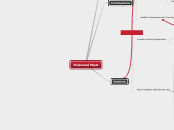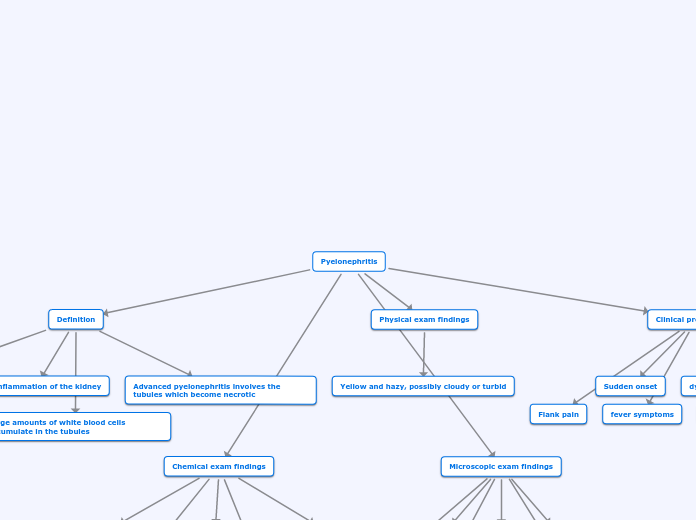Enveloped
Naked
Hyphae-multicellular
filaments, divided by
septa
Both -/+ have:
-Glycocalyx
(sugarshell)
-Capsule-compact layer
*protection from phagocytosis*
-Slime Layer-runny, unorganized
*contributes to biofilm*
Microbes
NON-LIVING
Acellular
Prions
-one single protein
-NO nucleic acid
-Transmissible
Spongiform Encephalopathies (TSE)
----slow fatal neurodegenerative
disease
***brain tissues develop holes
scrapie --> goats
mad cow and kuru --> people
Viroids
-small single
strand RNA
-NO protein coat
-cause disease in
plants
Viruses
"obligate intracellular
parasites"
-need host cell for
protein synthesis machinery
-very small
-Structure:
Infections
Persistent
years of lifetime
Latent
periods of latency
with potential for reactivation
to productive infection
Herpes (cold sores)
Varicella zoster
(chicken pox
--shingles)
Chronic
virons constant
release in low
levels = productive
Hep. B
HIV
Acute:
rapid onset
short duration
Genome Replication:
Retroviruses --> reverse
transcriptase to transcribe
RNA -->
RNA replicase
RNA/Retro rapidly
undergo antigenic drift
mechanism for
variation in viruses
(accumulation
of mutations)
DNA -->
DNA polymerase
DNA will NOT
make mistakes
LIVING
microorganisms
Complex cells
Eukaryotes
Helminths
Worms
3) Insect Bites
transmit tiny
thread like worms
River Blindness
--black fly
Elephantiasis
--mosquito
2) Burrow through skin
(bare feet, poor sanitation)
Schistosomiasis
1) Ingestion
feces-->pinworm, asariasis
raw meat-->tapeworm
Protozoa
unicellular, heterotrophs
-lack cell wall
-motile
Toxoplasmosis
--cysts ingested
pregnant women kitty litter
REMEMBER:
protozoan cysts can
withstand stomach
acid
**essential for fecal-oral route
Giardiasis
--fecal-oral-cyst form
beaver fever
Malaria
--Mosquito vector
Fungi
Cause Human Illness
3) Mycoses
-fungal infections
grow on/in body
Lung infection
--**worse on
immunocompromised
Candida (mucous
membrane)
--vulvovaginal, oral thrush
Dermatophyte
--Ringworm,Jock itch
2) Allergy/Asthma
-hypersensitivity
1) Intoxication
-toxins poisonous
Heterotrophs
-cell wall CHITIN
-Ergosterol in cell
membrane
-target for antibiotics
Morphological Forms:
Mushrooms
-multicellular
-reproductive
structures:
**obtain nutrients
by secreting
digestive enzymes
Moulds
-multicellular
Yeasts
-unicellular
Algae
Autotrophs
-cell wall made
of cellulose
-toxins--> paralytic
shellfish poisoning
Simple cells
Prokaryotes
Bacteria
Chapter 20
Part 1
Narrow Spectrum
target a specific
group
**must know
exact target
Broad Spectrum
effective against
>1 group of bacteria
**kills microflora
Selective Toxicity
kills microbes
--> low toxicity
to humans
Chapter 4
Growth
Factors Affecting Growth
Expectations
Endospores -->
bacillus and clostridium
Myobacteria -->
waxy, lipid cell wall
Mycoplasma -->
lack cell wall
Nutrients
Fastidious
cannot make
things from
scratch
Versatile
can make
things from
scratch
Salt
Extreme Halophiles
require high
salt
Halophiles
require salt
Halotolerant
small amount
of salt
pH Requirements
Alkaliphiles
pH >8
(high pH)
Acidophiles
pH <5
(low pH)
Neutrophiles
grow best
pH~7
Oxygen Requirements
Microaerophile
needs small
amounts of
oxygen
contain enzyme
to detoxify
(only have a
few enzymes
to break down
oxygen)
Aerotolerant Anaerobe
indifferent to
oxygen
-doesnt care
either way
contain enzyme
to detoxify
Obligate Anaerobe
must have NO
oxygen (poisoned
by oxygen)
does NOT contain
enzyme to detoxify
-endospores survive
Facultative Anaerobe
"make do" without
oxygen but grow
better with
contain enzyme
to detoxify
Obligate Aerobe
MUST have oxygen
Contain enzymes
to detoxify
Temperature
psychro/meso/thermo
Calculating Growth
#=initial # * 2^(#of doublings)
Generation Time
amount of time
it takes to double
Binary Fisson
splitting into 2
Chapter 3
Structure
Appendages
Sex Pilus
Conjugation
(transfer of
plasmid DNA)
Fimbriae
attachment to
surfaces
Flagellum
Mobility
and
enables
chemotaxis
Gram-Negative
-thin PTG wall
-outer membrane
-LPS-endotoxins
-porins
Gram-Positive
-thick PTG wall
(many layers)
Cell Wall
-PTG
-specific to bacteria
-protection against lysis
-essential for survival
Chromosomal
DNA
-basic genome
-all contain this DNA
Ribosomes (70s)
-cannot survive
without protein
synthesis (70s)
Plasmid DNA
-Contains genes
resistant to
antibiotics
Cell Membrane
-regulates the entry
and exit of substances
-*transport and
receptor proteins*
Archaea









